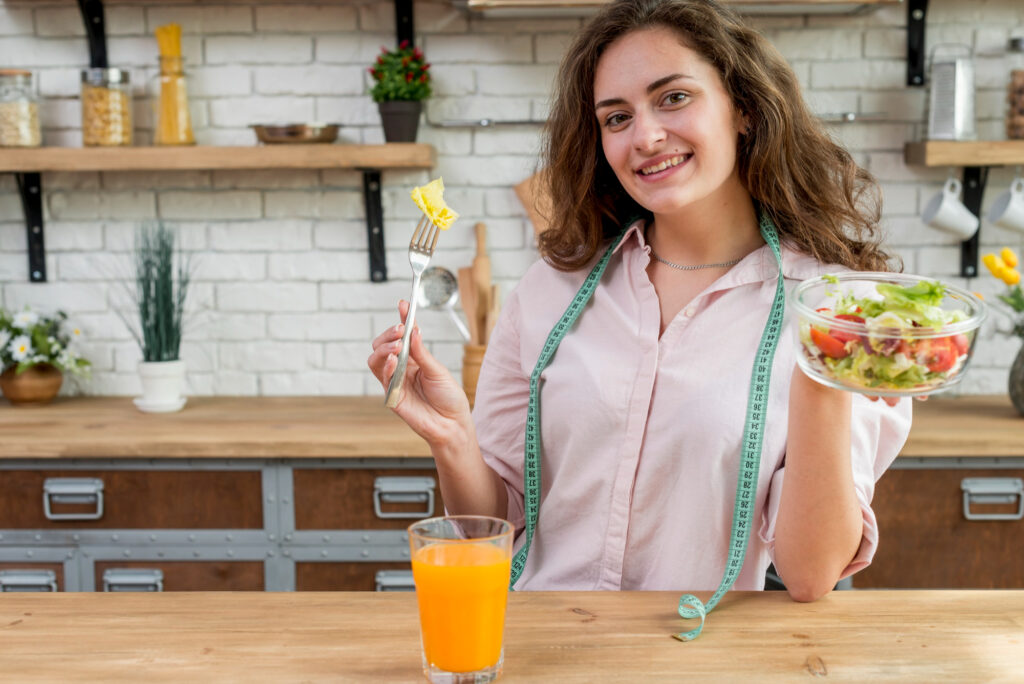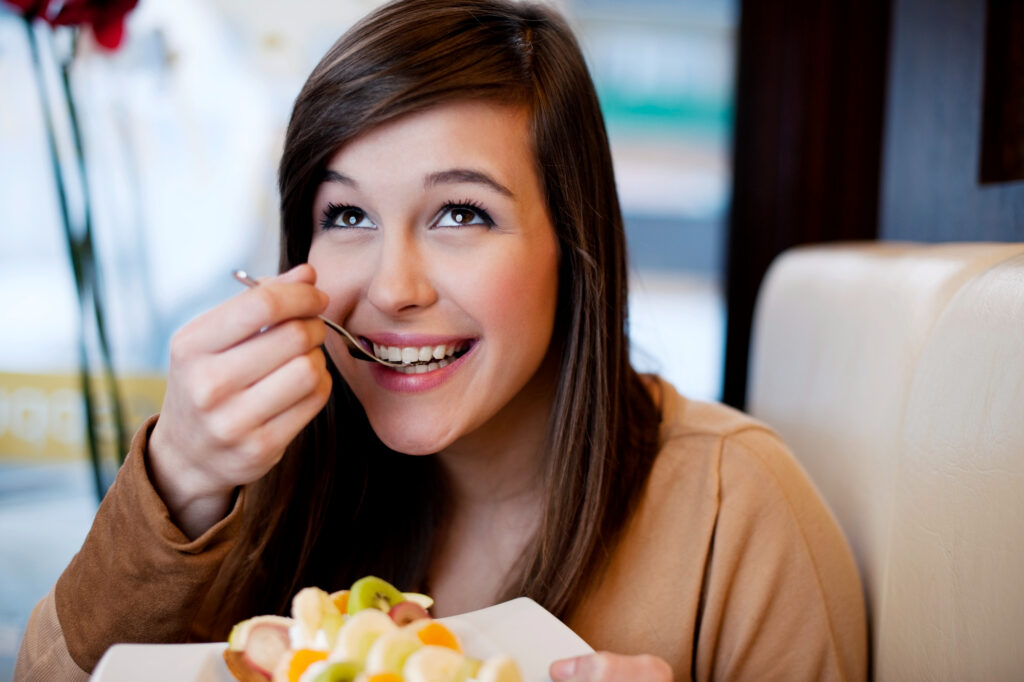
Eating is not just about fueling our bodies; it’s also about enjoying the experience. In fact, the pleasure we get from food plays a vital role in our overall well-being. This concept is often referred to as “Vitamin P”—with the “P” standing for Pleasure. Just like vitamins A, B, C, and D, Vitamin P is essential for a balanced life. But what exactly does it mean to get your Vitamin P, and how can you make sure you’re getting enough of it in your diet? This article will explore how to get your vitamin p, why pleasure matters when it comes to eating and how you can maximize the joy in your meals.
What is Vitamin P?
Vitamin P isn’t a nutrient you’ll find on a nutrition label, but it’s just as important as the vitamins and minerals your body needs to function properly. Vitamin P is a way of thinking about the pleasure that comes from eating. It’s about savoring the taste, texture, and aroma of your food, and enjoying the experience of eating without guilt or stress.
Eating with pleasure can help you feel more satisfied, improve your relationship with food, and even support better digestion and overall health. When you take the time to truly enjoy what you eat, you’re not just nourishing your body—you’re nourishing your mind and spirit as well.
For more on the concept of mindful eating and its benefits, check out Harvard Health.
The Science Behind Pleasure and Eating
There’s a reason why eating something delicious feels so good. When you enjoy your food, your brain releases feel-good chemicals like dopamine, which can boost your mood and create a sense of happiness. This positive response can make you feel more satisfied with your meal, even if you’ve eaten less than usual.
Moreover, when you eat foods you enjoy, your body tends to digest them more efficiently. This is because the pleasure of eating can help you relax, which in turn activates the parasympathetic nervous system—also known as the “rest and digest” system. When you’re relaxed, your body is better able to absorb nutrients and digest food properly.

On the other hand, eating in a stressed or rushed state can lead to digestive issues like bloating, indigestion, and discomfort. That’s why it’s important to take the time to enjoy your meals, savor each bite, and eat in a relaxed environment.
For more information on how stress affects digestion, visit Cleveland Clinic.
How to Your Vitamin P More Through Your Diet
Getting your daily dose of Vitamin P doesn’t require a prescription or a trip to the pharmacy. It’s all about making small changes to how you approach food and eating. Here are some simple tips to help you boost the pleasure in your meals:
Slow Down and Savor
One of the easiest ways to increase your Vitamin P intake is to slow down and savor your food. Instead of rushing through meals or eating on the go, take the time to sit down, breathe, and fully enjoy what’s on your plate. Pay attention to the flavors, textures, and aromas of your food. Chew slowly and thoroughly, and allow yourself to really taste each bite.
This mindful approach to eating can help you feel more satisfied with your meals and prevent overeating. It also gives your body the time it needs to properly digest your food, leading to better digestion and nutrient absorption.
For tips on how to eat more mindfully, you can visit Mindful.org.
Choose Foods You Love
Eating should be an enjoyable experience, so it’s important to choose foods that you genuinely love. This doesn’t mean you have to eat unhealthy foods all the time—in fact, many healthy foods can be incredibly delicious if prepared in a way that you enjoy.
Experiment with different recipes, flavors, and cooking methods to find what you love. For example, if you’re not a fan of steamed vegetables, try roasting them with a bit of olive oil and seasoning for a different flavor profile. If you love pasta but want a healthier option, try whole grain or veggie-based pasta with your favorite sauce.
Remember, healthy eating doesn’t have to be boring. By choosing foods you love, you’ll be more likely to enjoy your meals and feel satisfied afterward.
For healthy and delicious recipe ideas, check out EatingWell.
Create a Pleasant Eating Environment
The environment in which you eat can have a big impact on your enjoyment of food. Eating in a pleasant, relaxed setting can enhance your experience and make meals more enjoyable.
Set the table, light a candle, or play some soft music to create a calming atmosphere. Avoid eating in front of the TV or while working, as distractions can take away from the pleasure of the meal. Instead, focus on the food in front of you and the company you’re with.
If you’re eating alone, take the time to appreciate the meal you’ve prepared and the nourishment it provides. Creating a positive eating environment can turn even a simple meal into a pleasurable experience.
For ideas on creating a more enjoyable eating environment, visit Better Homes & Gardens.
Don’t Stress About Food Choices
One of the biggest barriers to enjoying food is stress or guilt about what you’re eating. It’s important to remember that all foods can fit into a healthy diet, and there’s no need to feel guilty about enjoying a treat every now and then.
Rather than labeling foods as “good” or “bad,” try to adopt a more balanced approach. Focus on nourishing your body with a variety of foods, including fruits, vegetables, whole grains, and lean proteins, but also allow yourself to enjoy the occasional indulgence.
By letting go of food-related stress and guilt, you can enjoy your meals more fully and feel more satisfied overall.
For more on maintaining a balanced approach to eating, visit Healthline.
Connect with Others Over Food
Eating is often a social activity, and sharing meals with others can enhance the pleasure you get from food. Whether it’s a family dinner, a meal with friends, or a picnic in the park, eating with others can make the experience more enjoyable.
Social connections are also important for your overall well-being. Sharing a meal with others can strengthen relationships, reduce feelings of loneliness, and create positive memories.
If possible, try to eat with others as often as you can. Even if you’re eating alone, consider joining an online cooking class or virtual dinner party to connect with others around food.
For tips on hosting virtual dinner parties, check out Bon Appétit.
The Role of Culture in Food Pleasure
Culture plays a significant role in how we experience food and pleasure. Different cultures have unique traditions, flavors, and rituals around eating that can enhance the enjoyment of food.
For example, in Mediterranean cultures, meals are often leisurely affairs that emphasize fresh, flavorful ingredients and social connection. In Japan, there’s a strong emphasis on presentation, with meals often being carefully arranged to be visually pleasing as well as delicious.
Exploring the foods and eating traditions of different cultures can add variety and excitement to your meals. Try incorporating elements from other cultures into your meals, such as a Spanish tapas night, an Italian pasta dinner, or a Japanese sushi-making experience.
For more on the importance of food culture, visit National Geographic.
Balancing Pleasure with Nutrition
While pleasure is an important part of eating, it’s also essential to balance it with nutrition. After all, food is fuel for our bodies, and we need the right nutrients to stay healthy and energized.
The good news is that you don’t have to choose between pleasure and nutrition—you can have both! By focusing on whole, nutrient-dense foods that you enjoy, you can create meals that are both delicious and nourishing.
Here are some tips for balancing pleasure with nutrition:
- Include a Variety of Foods: A balanced diet includes a variety of foods from all food groups. Aim to include fruits, vegetables, whole grains, lean proteins, and healthy fats in your meals.
- Listen to Your Body: Pay attention to how different foods make you feel. Choose foods that satisfy your taste buds but also leave you feeling good afterward.
- Practice Portion Control: Enjoy your favorite indulgent foods in moderation. You can still have dessert or a rich meal, but try to balance it out with lighter options and appropriate portions.
- Stay Hydrated: Don’t forget to drink plenty of water throughout the day. Staying hydrated is key to feeling good and enjoying your meals.
For more on creating balanced, nutritious meals, visit ChooseMyPlate.
The Power of Cooking at Home
Cooking at home is one of the best ways to get your Vitamin P. When you cook your own meals, you have control over the ingredients, the flavors, and the portion sizes. Plus, cooking can be a fun and creative activity that brings you joy and satisfaction.
Even if you’re not a seasoned chef, there are plenty of simple and delicious recipes you can try at home. Start with easy dishes that you love, and gradually experiment with new ingredients and cooking techniques.
Cooking at home also allows you to involve your family or friends in the process, turning meal prep into a social activity. You can cook together, share recipes, and enjoy the fruits of your labor as a group.
For easy and tasty recipes you can try at home, visit AllRecipes, which offers a wide range of dishes to suit all skill levels and preferences.
How to Make Cooking More Enjoyable
For some people, cooking can feel like a chore. However, there are plenty of ways to make it a more enjoyable and rewarding experience. Here are some tips to help you find more pleasure in the kitchen:
- Start Simple: If you’re new to cooking or feel intimidated, start with simple recipes that require just a few ingredients and basic techniques. As you become more comfortable, you can try more complex dishes.
- Use Fresh Ingredients: Fresh, high-quality ingredients can make a big difference in the taste and enjoyment of your meals. Whenever possible, use fresh produce, herbs, and other ingredients to enhance the flavor of your dishes.
- Make It Social: Turn cooking into a social event by involving your family, friends, or roommates. You can cook together, share tasks, and enjoy each other’s company while preparing a meal.
- Play Music: Create a relaxing or upbeat atmosphere in your kitchen by playing your favorite music while you cook. Music can make the experience more enjoyable and help you get into the flow of cooking.
- Experiment with New Flavors: Don’t be afraid to try new spices, herbs, and ingredients. Experimenting with different flavors can make cooking more exciting and help you discover new favorite dishes.
- Set the Mood: Just as you would set the table for a meal, you can also set the mood for cooking. Light a candle, play soft music, and create a peaceful environment that makes the process more enjoyable.
- Celebrate Small Wins: If you successfully make a dish you’ve never tried before, take a moment to celebrate your accomplishment. Cooking is a skill that improves with practice, so give yourself credit for your progress.
For more tips on enjoying cooking, visit Epicurious.
Mindful Eating: The Key to Enjoying Food
Mindful eating is a practice that involves paying full attention to the experience of eating and drinking. It’s about being present in the moment and savoring each bite, rather than eating mindlessly or while distracted. Practicing mindful eating can help you fully enjoy your meals and get the most out of your Vitamin P.
Here are some simple steps to practice mindful eating:
- Eat Slowly: Take your time with each bite, and chew your food thoroughly. Eating slowly allows you to savor the flavors and textures of your food and helps you feel more satisfied.
- Eliminate Distractions: Avoid eating in front of the TV, computer, or phone. Instead, focus on the food in front of you and the experience of eating.
- Notice the Flavors: Pay attention to the different flavors, aromas, and textures of your food. Take a moment to appreciate the taste and how it makes you feel.
- Listen to Your Body: Tune in to your body’s hunger and fullness cues. Eat when you’re hungry, and stop when you’re satisfied, not when you’re overly full.
- Express Gratitude: Take a moment to feel grateful for the food you’re eating and the effort that went into preparing it. Gratitude can enhance your enjoyment of the meal.
For more on mindful eating, visit Mindful.org.
The Connection Between Food and Emotions
Food is deeply connected to our emotions, and what we eat can have a significant impact on how we feel. Comfort foods, for example, are often associated with positive emotions and can bring a sense of happiness and nostalgia. However, it’s important to find a balance between eating for pleasure and eating to manage emotions.
Emotional eating can happen when we use food to cope with stress, boredom, sadness, or other emotions. While it’s normal to occasionally eat for comfort, relying on food to manage emotions can lead to unhealthy eating patterns and feelings of guilt or shame.
Here are some tips for balancing food and emotions:
- Identify Triggers: Pay attention to the emotions or situations that trigger emotional eating. Understanding your triggers can help you develop healthier coping strategies.
- Find Alternative Comforts: Instead of turning to food when you’re feeling stressed or upset, try other activities that bring you comfort, such as taking a walk, talking to a friend, or practicing relaxation techniques.
- Practice Mindful Eating: By eating mindfully, you can better understand your hunger and fullness cues and make more intentional choices about what and when you eat.
- Allow Yourself to Enjoy Food: It’s okay to enjoy food and find pleasure in eating. The key is to do so mindfully and without guilt.
For more information on emotional eating, visit Psychology Today.
Final Thoughts: Embrace the Joy of Eating
Getting your daily dose of Vitamin P is all about embracing the joy of eating and making food a pleasurable experience. By slowing down, choosing foods you love, creating a pleasant eating environment, and practicing mindful eating, you can enhance the pleasure you get from your meals.
Remember, eating is not just about nourishing your body—it’s also about nourishing your soul. When you enjoy your food, you’re taking care of your overall well-being. So, go ahead and savor each bite, explore new flavors, and make every meal an opportunity to experience the pleasure of eating.
For further reading on the connection between pleasure and eating, check out these resources:
- Harvard Health: The Importance of Pleasure in Eating
- Mindful.org: The Practice of Mindful Eating
- Healthline: Finding Balance in Healthy Eating
By incorporating these principles into your daily life, you can make every meal a moment of joy and nourishment. Enjoy your journey to discovering the power of Vitamin P!
FAQ Section: How to Get Your Vitamin P: Pleasure Matters When it Comes to What You Eat
- What is Vitamin P, and why is it important in our diet?
Vitamin P, where “P” stands for Pleasure, isn’t a nutrient like the vitamins you find on a nutrition label, but it’s just as vital for our well-being. It refers to the enjoyment and satisfaction you get from eating. When you savor your meals and eat foods you love, you’re not just fueling your body—you’re also nourishing your mind and soul. The pleasure in eating can lead to better digestion, a more positive relationship with food, and overall improved mental and emotional health. Eating with joy can help you feel more satisfied and reduce the stress that sometimes accompanies food choices.
- How can pleasure in eating affect my overall health?
Pleasure in eating plays a significant role in your overall health. When you enjoy what you eat, your body responds positively—releasing feel-good hormones like dopamine, which enhance your mood and make you feel more content. This satisfaction can prevent overeating since you’re more likely to stop when you feel fulfilled. Moreover, eating in a relaxed state helps activate your parasympathetic nervous system, which promotes better digestion and nutrient absorption. On the contrary, eating while stressed or distracted can lead to digestive issues and a less satisfying eating experience.
- How can I incorporate more Vitamin P into my daily meals?
Incorporating more Vitamin P into your meals involves making simple yet impactful changes to how you approach eating. Start by slowing down and savoring each bite, paying attention to the flavors and textures of your food. Choose foods you genuinely enjoy and experiment with different recipes and cooking methods to find what delights you. Creating a pleasant eating environment, free from distractions, also enhances your meal experience. Finally, let go of food-related stress and allow yourself to enjoy treats without guilt, focusing on balance and moderation instead.
- What are some practical tips for eating mindfully and enjoying my food more?
Mindful eating is about being fully present during your meals and savoring the experience. To practice mindful eating, start by eating slowly, chewing your food thoroughly, and noticing the different flavors and textures. Eliminate distractions like TV or phones, and focus solely on your meal. Pay attention to your body’s hunger and fullness cues, and stop eating when you’re satisfied, not overly full. Express gratitude for your food and the effort that went into preparing it. These practices can help you derive more pleasure from your meals and make eating a more joyful experience.
- How can I balance the pleasure of eating with maintaining a healthy diet?
Balancing pleasure and nutrition involves making thoughtful food choices that satisfy both your taste buds and your nutritional needs. Focus on including a variety of whole, nutrient-dense foods in your diet, such as fruits, vegetables, whole grains, lean proteins, and healthy fats. At the same time, don’t deprive yourself of the foods you love—enjoy them in moderation. Listen to your body and choose foods that make you feel good, both physically and emotionally. By practicing portion control and eating mindfully, you can enjoy your favorite treats while maintaining a healthy diet.
- How does the environment in which I eat impact my enjoyment of food?
The environment in which you eat plays a crucial role in how much you enjoy your food. A calm, pleasant setting can enhance the flavors and experience of a meal. To create a positive eating environment, set the table nicely, perhaps with candles or soft music, and avoid eating in front of the TV or while working. Focus on the meal in front of you and the company you’re with, if any. Even when eating alone, taking the time to appreciate your meal and surroundings can turn a simple dish into a satisfying experience.
- Can cooking at home help me get more Vitamin P?
Absolutely! Cooking at home is one of the best ways to increase your intake of Vitamin P. When you cook your own meals, you have full control over the ingredients, flavors, and portions, allowing you to create dishes that you truly enjoy. Cooking can also be a creative and rewarding activity that brings you joy and satisfaction. Whether you’re trying a new recipe or perfecting an old favorite, the act of preparing food can be just as pleasurable as eating it. Plus, cooking at home often involves sharing meals with family or friends, which can further enhance the enjoyment.
- How can I handle emotional eating while still finding pleasure in food?
Emotional eating, or eating in response to feelings like stress, boredom, or sadness, can sometimes detract from the true pleasure of eating. To manage emotional eating, start by identifying your triggers—what emotions or situations lead you to eat when you’re not hungry? Once you understand your triggers, find alternative ways to cope with those emotions, such as exercise, talking to a friend, or practicing relaxation techniques. When you do eat, focus on mindful eating and savoring your food, rather than eating out of emotion. It’s also important to allow yourself to enjoy food without guilt—find a balance between comfort and mindful, intentional eating.
- What role does culture play in the pleasure we get from food?
Culture significantly influences how we experience and enjoy food. Different cultures have unique food traditions, flavors, and rituals that can enhance the pleasure of eating. For example, in Mediterranean cultures, meals are often leisurely and social, focusing on fresh, flavorful ingredients. In Japan, the visual presentation of food is as important as the taste, adding an aesthetic pleasure to the meal. Exploring and incorporating elements from various cultures into your meals can add variety and excitement to your diet, making eating a more enjoyable and enriching experience.
- Can pleasure in eating actually improve digestion?
Yes, the pleasure of eating can indeed improve digestion. When you enjoy your food and eat in a relaxed state, your body’s parasympathetic nervous system is activated, which supports the digestive process. This system, often referred to as the “rest and digest” mode, helps your body absorb nutrients more efficiently and reduces the likelihood of digestive discomfort. In contrast, eating while stressed or in a hurry can activate the sympathetic nervous system, leading to issues like indigestion, bloating, and poor nutrient absorption. By savoring your food and eating in a calm environment, you can enhance both your pleasure and your digestive health.

